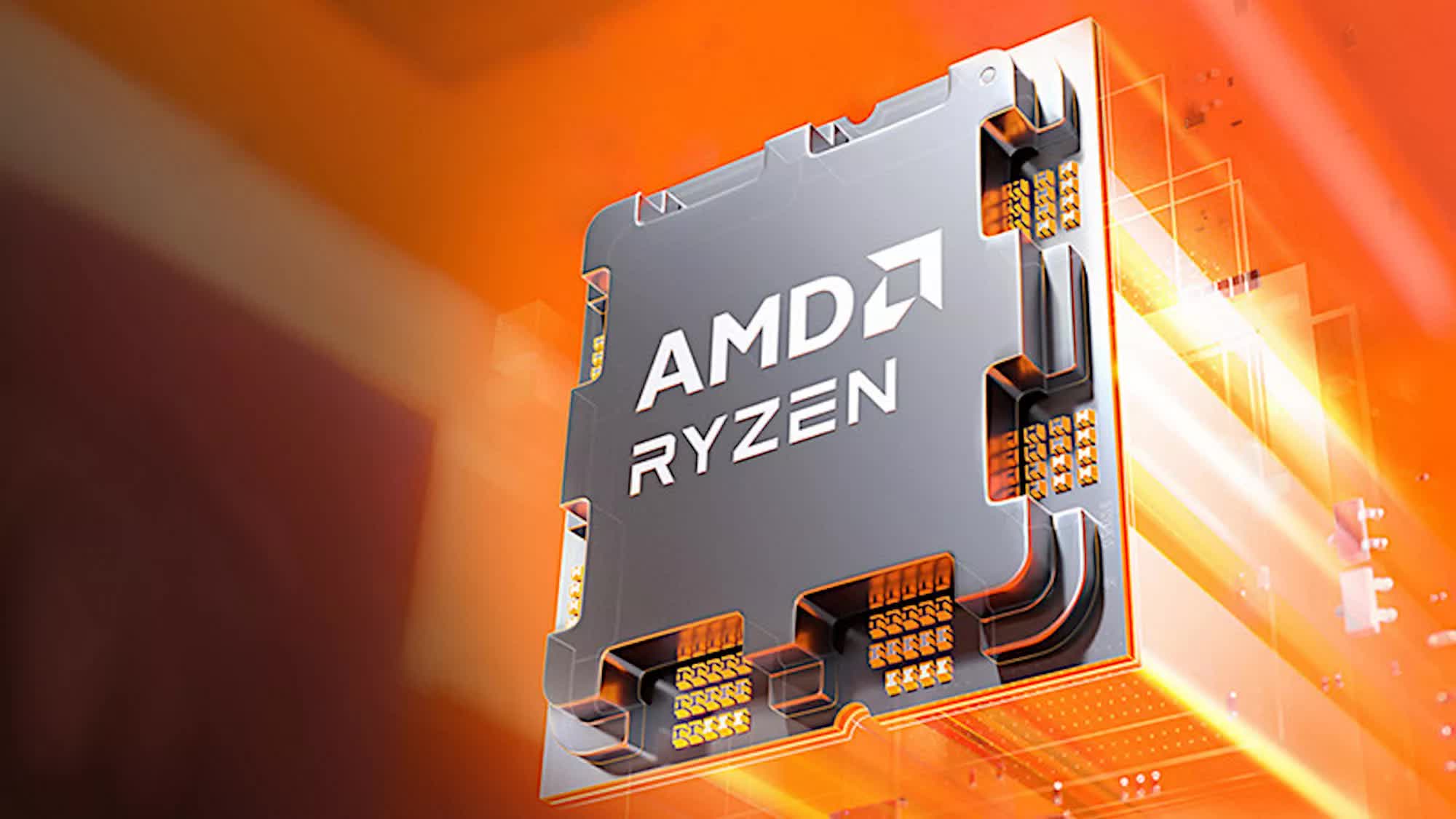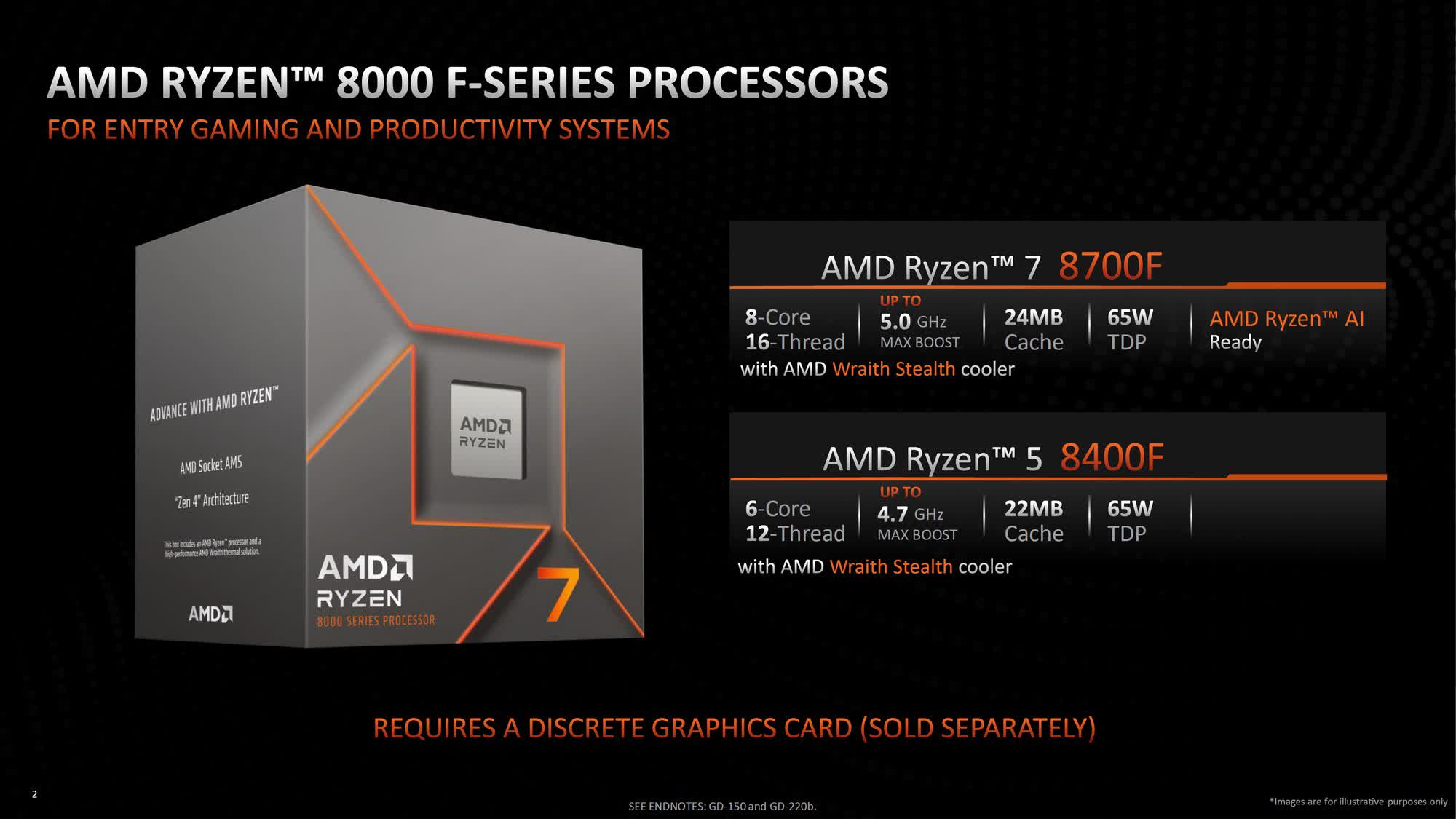What just happened? Following a massive leak earlier this week, AMD has officially launched its first two "Hawk Point" processors for budget gaming rigs. The Ryzen 7 8700F and Ryzen 5 8400F were originally released in China earlier this year and are now available in the US from leading e-commerce outlets like Amazon, Newegg, and B&H.
Both the chips are aimed at gamers on a budget and come with relatively affordable price tags. While the 8700F is priced at $269, the 8400F costs just $169. However, the affordability comes with a compromise, as they miss out on the integrated graphics found on the Ryzen 8000G processors. For example, the Ryzen 7 8700G comes with an integrated RDNA 3 chip with 16 Compute Units, making it a better option for casual gamers who'd rather not invest in a discrete GPU.
The Ryzen 7 8700F and the Ryzen 5 8400F are both based on the Zen 4 architecture, but while the former comes with 8 cores and 16 threads, the latter features 6 cores and 12 threads. Both are compatible with AMD's existing AM5 socket and have unlocked multipliers to facilitate overclocking.
In terms of specifications, the 8700F has a base clock of 4.1 GHz and a boost clock of 5 GHz, both of which are marginally lower than that of the Ryzen 7 8700G. Other notable features of the 8700F include 8MB of L2 cache, 16MB of L3 cache, and a 45-65W configurable TDP. It also comes with AI capabilities, thanks to the built-in 16 TOPS XDNA NPU.
As for the 8400F, it has a 4.2 GHz base clock and 4.7 GHz boost clock. Like the 8700F, it also offers 16MB of L3 cache, but the amount of L2 cache is slightly lower, at 6MB. It also has a 45-65W cTDP like its more powerful sibling, but misses out on the native NPU.
In its marketing material, AMD compared the Ryzen 7 8700F against the Intel Core i5-14400F, claiming that its product is up to 24 percent faster than the Intel chip in terms of gaming performance while using an unspecified discrete GPU. It is also said to be up to 22 percent faster in general applications. As for the Ryzen 5 8400F, AMD claims it offers up to a 14 percent improvement in gaming performance with a discrete graphics card.

